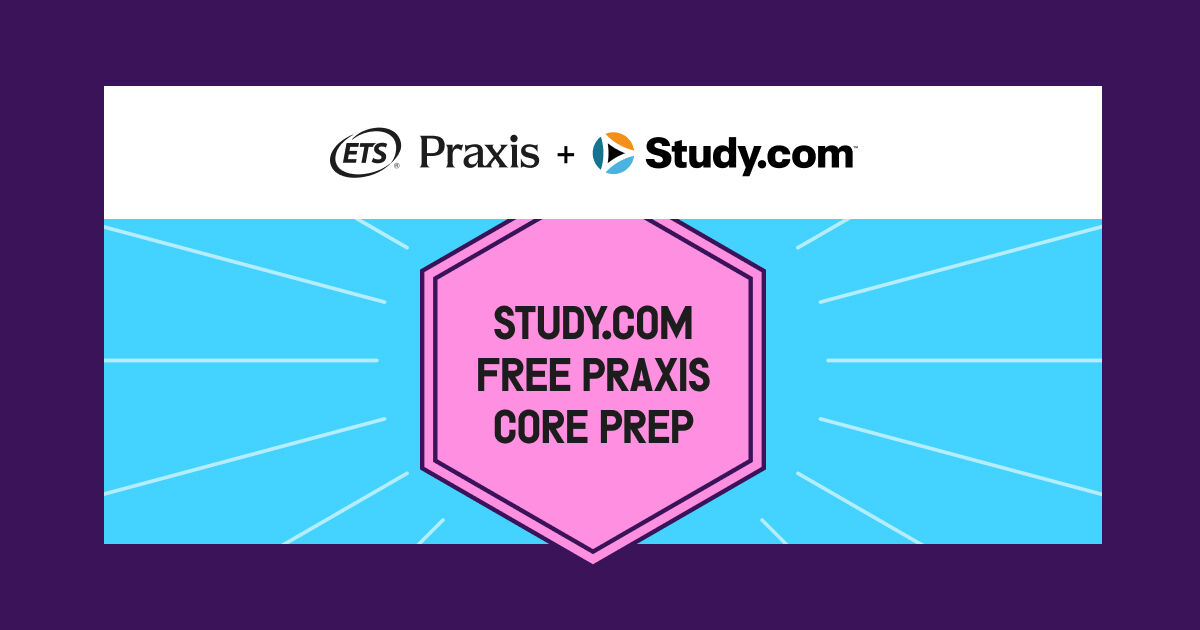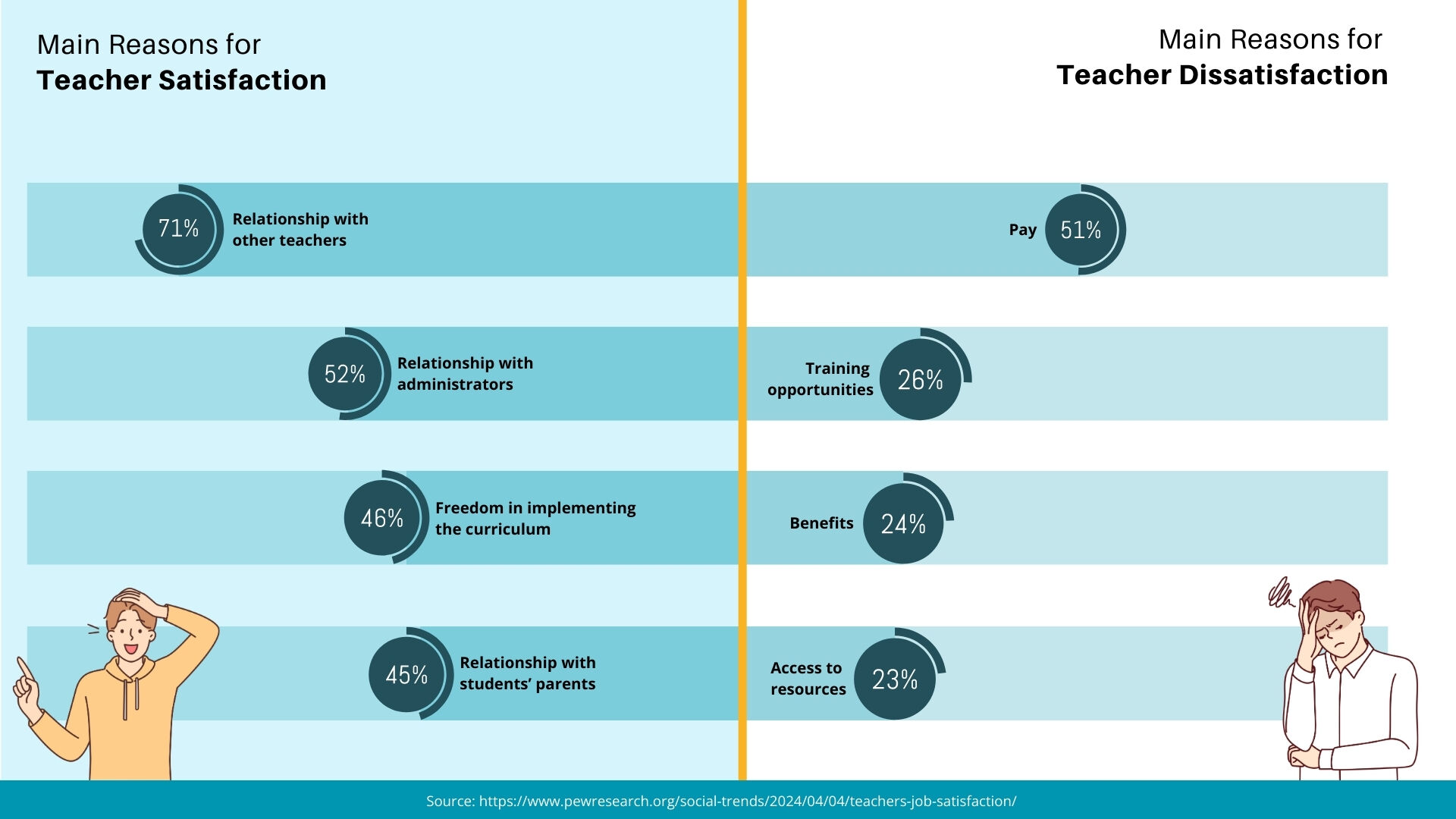Building test confidence
When preparing for the Praxis exam, test takers often focus on the content and deemphasize learning about the different types of questions.
Yes, a thorough knowledge of the test content will help build provide confidence, but it’s that specific, granular focus on the exam format and structure that can really make the difference on test day.
To that end, here are some key tips and strategies that can help you score higher and succeed on the Praxis exams.
Seven skills for test-day application
- Know the test-question types: Test takers should identify the types of questions that they will encounter on the test. Such questions range from recall to synthesis (based on Bloom's Taxonomy). Multiple-choice questions may consist of situational questions that require some evaluation of the scenario and a subsequent understanding of the question being asked. Simple recall questions may be incorporated in innovative item types like Drag and Drop/Order Match and Grid. And constructed responses have the test taker write a paragraph or two based on the question and the content area.
- Carefully read the questions: Test takers often rush to answer the question without fully understanding it. A question may have a stimulus that can consist of background information and context. Review the question and “ask yourself whether the answer you are considering completely addresses the question.” It is a good idea to read the stem, and then refer to the stimulus for better understanding. Finally, review all options and identify the one that answers the question accurately.
- Eliminate options: After reading the question, eliminate the distractors, or the incorrect options. There may be tell-tale signs that an option is incorrect. For example, they might have nothing to do with the stimulus, or they might have key words that will tell a candidate that it is a wrong answer.
- Choose the correct response from two short-listed responses: If you are guessing between two responses, pay close attention to the absolute words and qualifiers. Words like "always," "never," "all," and "none" are always associated to the distractor to make them incorrect. Options with qualifiers like “often,” “generally,” “usually,” and “tend to” are most likely to be correct.
- Answer all questions on the test. The Praxis exam does not penalize test takers for answering a question incorrectly; you are better off guessing instead of skipping a question. Chances are, you might answer correctly. We recommend “mark[ing] particularly challenging questions and com[ing] back to them at the end.” Trust your instincts, and do not change your answer unless you discover you misread the question or otherwise know you made an error.
- Keep track of time: Praxis exams have a built-in clock that counts down as the test progresses. To save time, do not spend too much time on any one question. The testing platform allows you to bookmark or skip a question and come back to it. You will not get penalized if you answer incorrectly.
- Practice makes perfect: Most importantly, familiarize yourself with the question types and structures, and apply these strategies to your practice questions. Doing so helps to “use practice questions and quizzes to identify what are your areas of strength and areas of growth.”
Taking the right preparation
By implementing these strategies, you can approach your Praxis exam with greater confidence and preparedness.
Remember that success on the Praxis is not just about content knowledge; you need to also understand the exam structure and effective test-taking techniques. Take the time to practice these strategies alongside your content review, and you'll be well-equipped to perform at your best on test day.
Ultimately, your success on the Praxis exam is a stepping stone towards your teaching career. While the test may seem daunting, view it as an opportunity to demonstrate your knowledge and skills. Stay positive, trust in your preparation, and remember that each question you answer brings you one step closer to achieving your goal.
Ready to prepare for your Praxis?
Get started
By Aparajita Mitra
Aparajita Mitra is an ETS Assessment Specialist. She has a Master of Arts in special education from Kean University, NJ, and has worked extensively with students with specific learning disabilities, emotional and behavioral disorder, and autism spectrum disorder. As an Assessment Specialist, she has developed standardized assessments for the Praxis Special Education series’ teacher licensure program.
More Posts

Strategies for Student Engagement and Classroom Practice

By Praxis Editorial Team
Published on August 13, 2024
.jpg)
Top AI Tools That Benefit Teaching and Learning

By Praxis Editorial Team
Published on July 30, 2024

Mastering Teacher Skills Through Performance Tasks

By Praxis Editorial Team
Published on July 16, 2024

Embracing Technology as a Learning Partner

By Praxis Editorial Team
Published on July 2, 2024

Becoming a Teacher: A Guide for Aspiring Educators

By Praxis Editorial Team
Published on June 18, 2024

Supercharging Pedagogy: The Power of AI in Education

By Praxis Editorial Team
Published on June 5, 2024

A Critical Resource: The Importance of Literacy Skills

By Praxis Editorial Team
Published on May 21, 2024

Social Emotional Learning: Vital for Teacher Preparation

By Praxis Editorial Team
Published on May 14, 2024

Overcoming Praxis Test Challenges: Retaking and Succeeding

By Praxis Editorial Team
Published on May 7, 2024
.jpg)
Future Directions: How Praxis and Study.com Consider Educator Preparation and Support

By Praxis Editorial Team
Published on April 30, 2024
.jpg)
Unveiling Educational Impact: ETS Praxis Ventures into New Research Horizons

By Praxis Editorial Team
Published on April 23, 2024

Achieving Success: Our Innovative Test Prep for Praxis Core

By Praxis Editorial Team
Published on April 15, 2024
.jpg)
Unlocking Diversity: ETS and Study.com Research Explores Keys to the Classroom

By Praxis Editorial Team
Published on April 9, 2024

Enhancing Literacy Learning: Blending Technology and Education

By Praxis Editorial Team
Published on April 2, 2024

Get Your Dream Job: Top 10 Interview Questions

By Praxis Editorial Team
Published on March 25, 2024

Making the Grade: Finding Your Ideal First Teaching Job

By Praxis Editorial Team
Published on February 27, 2024

Assessment Strategies I Wish I Knew When I Started Teaching

By Praxis Editorial Team
Published on March 12, 2024

Empowering New Teachers with Professional Development

By Praxis Editorial Team
Published on March 5, 2024

Supercharging Education with Formative Learning

By Praxis Editorial Team
Published on March 19, 2024

Meet Praxis: Where Education Leads the Conversation

By Praxis Editorial Team
Published on February 20, 2024

Breaking Boundaries: Praxis and Study.com Partner to Empower Educators

By Praxis Editorial Team
Published on February 20, 2024

Building the Future of Teaching: Essential Investments for New Educators

By The Study.com Editorial Team
Published on September 10, 2024

Unlocking Student Potential: How SEL Fosters Success

By Praxis Editorial Team
Published on August 27, 2024

Fostering Teaching Excellence: A Cornerstone of Educational Success

By Praxis Editorial Team
Published on September 24, 2024

ProEthica: Promoting Ethical Education and Teaching Excellence

By Praxis Editorial Team
Published on October 8, 2024
New Praxis prep - available now!
Learn more




